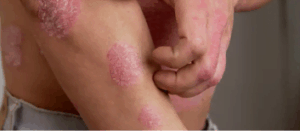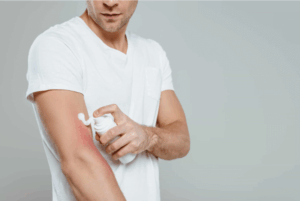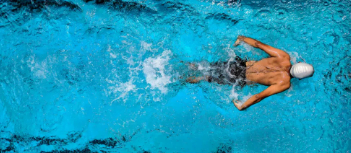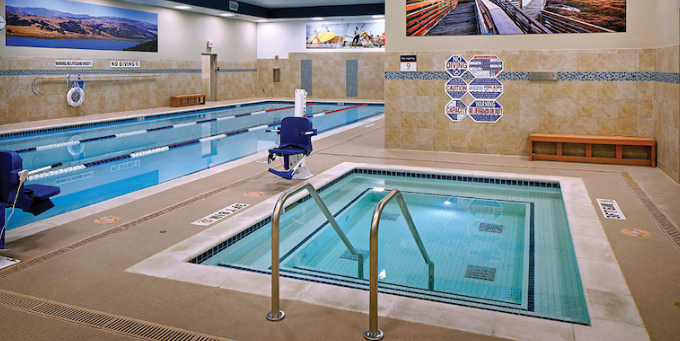My eczema symptoms have significantly improved with regular sauna sessions; they have reduced inflammation and itching while also hydrating and repairing my skin. Saunas are usually not the best option for eczema sufferers to manage their disease because of the heat and sweat they produce, which may make them more uncomfortable and irritable.
Saunas are thought to help reduce stress and inflammation, but for those who have eczema, there may be more disadvantages than benefits. Although some people may benefit from infrared use, it’s widely agreed that it doesn’t help cure rashes or relieve dry, itchy skin.
Table of Contents
Is Sauna Good For Eczema?

Saunas are not thought to be helpful for eczema. For those who have acne, the heat and sweat generated in spas can aggravate irritation and inflammation, increasing pain and perhaps increasing symptoms.
Steam rooms are not advised as a main or effective therapy for the condition, even if they could provide some people with momentary relief or relaxation. People with itch should speak with medical specialists to create individualized treatment programs that take into account their unique requirements and conditions.
What is eczema?

Atopic dermatitis, another name for eczema, is a common inflammatory skin disorder characterized by dryness, itching, pain, and skin cracking. Its start can happen at any age, and patients may have periods of symptom control alternating with relapses, making therapy extremely difficult.
Although the exact cause of eczema is still unknown, it is generally accepted to have an inherited component that frequently runs in families. Psoriasis is characterized by inflammation of the skin, which causes redness and itching. Patches of skin that are red, swollen, and itchy, together with dryness, scaling, and occasionally blistering, are typical symptoms of eczema rash.
Eczema Symptoms
Eczema, sometimes called atopic dermatitis, can appear with a variety of symptoms, ranging in severity from mild to severe.
- Itching
- Moisture
- Redness
- Rash
- Cracking
- Swelling
- Sleekness
- Uncomfortable
- Disruptions to sleep
Eczema Treatments

The key to managing severe skin problems such as eczema is to recognize and treat the factors that lead to flare-ups. Eczema creams are often used to treat symptoms; however, they usually address the symptoms themselves instead of the underlying cause. To regulate the skin’s response to stimuli, these topical therapies can influence the immunological response.
Anti-infection drugs could also be essential for allergy management but with some side effects. Creams containing antibiotics work especially well in severe situations. In addition to conventional methods, non-traditional therapies, including infrared light therapy, psychotherapy, and relaxation techniques, could provide relief.
It has been demonstrated that infrared treatment reduces eczema symptoms and increases comfort for those with it. Because itch is a chronic condition, it usually takes longer to see results from therapy. Since acne has no known cure, it could be necessary to investigate several treatment options.
In situations where traditional approaches are not successful, Rimba Sweat infrared heat therapy can be a good substitute. Still, with their doctor to learn how infrared therapy might support their overall management strategy before adopting such therapies.
Psoriasis vs Eczema
While both psoriasis and eczema are long-term skin disorders marked by redness and skin irritation, they differ greatly from one another. As a result of the immune system mistakingly targeting healthy skin cells, psoriasis is a condition that is characterized by thick, red patches covered in shiny scales.
Sauna Eczema, sometimes called atopic dermatitis, on the other hand, is characterized by itchy, inflammatory patches of skin that can arise anywhere on the body and is frequently connected to heredity and environmental causes. Although both disorders can be uncomfortable and have an impact on quality of life, they need different management and treatment strategies.
What is an infrared sauna?
Infrared saunas are a particular kind of spa where the skin absorbs radiant heat directly from infrared heaters. Infrared saunas produce more severe sweat at lower temperatures because they reach deeper into the skin than regular steam rooms, which warm the air around you. It is thought that this technique can help with cleansing, relaxation, better circulation, and pain relief, among other health advantages.
Infrared spas are widely used in homes, wellness centers, and resorts. They are available in a variety of forms, including booths, portable units, and cabins. While a lot of individuals find infrared baths to be helpful, it’s vital to remember that those who have specific medical issues should speak with a healthcare provider before using one.
Benefits of Infrared sauna for eczema
- Detoxification: The infrared sauna’s ability to produce sweat may aid in the body’s removal of toxins, which may lessen the strain on the skin and lessen the symptoms of itch.
- Increased Circulation: The use of infrared heat has been shown to increase blood flow and circulation. This may help carry oxygen and vital nutrients to the skin, facilitating the healing process.
- Relaxation: The heat from the infrared spa helps to induce relaxation and relieve tension, which may lessen breakouts caused by stress.
- Pain Relief: Studies indicate that the release of narcotics caused by infrared heat treatment reduces pain and could reduce discomfort associated with rashes and flare-ups.
- Skin Hydration: By encouraging sweating and opening pores, infrared heat may aid in promoting hydrated skin and moisture retention, which is advantageous for skin prone to eczema.
Risks of Infrared Sauna for eczema
- Skin irritation: For some people, the infrared sauna’s heat and perspiration might worsen skin symptoms, causing more itching, redness, and discomfort.
- Dehydration: Excessive sweating in the heat can cause dehydration, which can exacerbate the symptoms of acne and further dry up the skin.
- Overheating: People who have rashes may be more likely to overheat, and extended use of the sauna’s high temperatures may cause or worsen flare-ups.
- Risk of Infection: Since infrared saunas are frequently shared areas, there is a higher chance of coming into contact with germs that might aggravate eczema symptoms or cause secondary infections.
- Interaction with drugs: It’s important to speak with a healthcare provider before beginning infrared heat therapy, particularly if you’re on medication, since it may interfere with some eczema drugs or treatments.
Some skin condition sufferers may benefit from infrared heat therapy, it is important to exercise caution and speak with a healthcare professional to find out whether it’s appropriate for your particular condition and medical background.
Can infrared saunas cause skin damage?
Infrared saunas can lead to skin harm if not utilized appropriately. Extended exposure to extreme temperatures can cause burns, rashes, or dehydration, particularly in people with allergies or other underlying skin disorders.
When utilizing an infrared steam room, it’s important to adhere to safety precautions, such as limiting the length of the session and drinking enough water, to reduce the danger of skin injury. Before beginning infrared therapy, it is best to speak with a healthcare provider, especially if you have any underlying medical concerns.
Does steam make eczema worse?
Although steam is frequently used in spas and at home to hydrate skin, it is not a therapeutic option for itchiness. Even though moisture is a common skin therapy, steam might make the problem worse due to its heat, irritation, and perspiration. Steam is not recommended for the treatment of eczema since it might irritate delicate skin and cause “facial flushing.”
Moisturizers work incredibly well to treat rashes. Although steaming may not always provide comfort for allergy sufferers, applying moisturizers to their skin can help them feel hydrated and less scratchy.
Conclusion
Saunas are typically thought to be detrimental to the management of eczema. Although some people may get short-term respite from stress and swelling, the heat and perspiration generated in baths can worsen irritation and cause flare-ups in those who have acne.
Hot tubs can increase symptoms of the condition, moisture is a typical therapy for the condition. As a result, to properly manage their condition, people with the illness must stay clear of saunas and instead concentrate on alternative therapies like moisturizers.
FAQs
The most frequently asked questions are given below:
Are saunas good for dry skin?
Sauna essential oils may provide the healing relief you need if you have dry skin. It is well known that sandalwood, chamomile, and lavender relieve and hydrate the skin. Of course, there are many more options available based on the requirements of your skin.
Can saunas help with skin rashes?
Acne, psoriasis, and eczema may all be effectively treated and managed with an infrared sauna session. Steam rooms have been demonstrated in studies to decrease inflammation, increase skin hydration, and aid in bodily detoxification.
Are saunas good for allergic reactions?
Saunas are quite beneficial for people who are battling allergies and their symptoms. Saunas’ heat and steam have the power to ease respiratory symptoms, encourage detoxification, lower stress levels, and open up airways for allergy patients.







